Well, hello there! It's Friday and we're flexing our muscles today, because we have a brand new sensor suite that should excite anyone with an interest in electromyography (EMG) technology. Not only are we bringing you a new muscle sensor, but also a couple shields that can connect to it, so you can incorporate it into any new project you can think up! Without further ado, let's watch Sarah give us a run-down of today's new products:
Thanks, Sarah! The MyoWare line is an exciting way to get into EMG!
This is the MyoWare Muscle Sensor, an Arduino-powered, all-in-one electromyography (EMG) sensor from Advancer Technologies. The MyoWare board acts by measuring the filtered and rectified electrical activity of a muscle, outputting 0-Vs Volts depending the amount of activity in the selected muscle (where Vs signifies the voltage of the power source).
The MyoWare Muscle Sensor is the latest revision of the Muscle Sensor of old, now with a new, wearable design that allows you to attach biomedical sensor pads directly to the board itself, getting rid of those pesky cables. This new board also includes a slew of other new features, including single-supply voltage of +3.1V to +5V, RAW EMG output, polarity protected power pins, indicator LEDs, and an On/Off switch.
Even though the MyoWare Muscle Sensor is designed so that sensor pads can be attached directly to the board, there still may be cases where you want to mount them away from other hardware; this is where the MyoWare Cable Shield comes in. This shield provides a 3.5mm jack where you can attach a three-electrode sensor cable, allowing you to test and use the MyoWare Muscle Sensor without actually attaching it to your person.
The MyoWare Power Shield is designed to use two standard CR2032 coin cell batteries to power the MyoWare Muscle Sensor. We have made this board so the coin cell batteries are connected in parallel for extended capacity at a nominal 3.0V. Connecting the MyoWare Muscle Sensor to battery power allows for a cleaner signal, while also eliminating the possibility of creating a dangerous current path to the power grid.
The last item up for the MyoWare product line today is the MyoWare Proto Shield. This little shield is a simple proto-board for your MyoWare Muscle Sensor. With this shield you will be able to use the area provided to solder on whatever custom circuitry you can come up with.
We have a new version of the Genuino 101 out! This new version is the exact same as the previous version, but now can be shipped to even more countries. You can check out all the countries this board can ship to by clicking [here](https://cdn.sparkfun.com/datasheets/Dev/Arduino/Boards/Genuino101-ATLASEDGE3 countries.pdf).
A reminder to US residents: The Genuino 101 is not available to you for purchase. If you would like to purchase one, look no further than the Arduino 101 instead!
Monday was Pi Day, and with that came two new Raspberry Pi products that are available for pre-order! First up is the Raspberry Pi 3 Starter Kit! This kit is a great way to gain a solid introduction to the small, credit-card sized computer. With the RPi3 Kit, which doesn’t require any soldering, you will be able to get your Raspberry Pi 3 connected through our SparkFun Pi Wedge to a breadboard and, by utilizing the Pi’s 40-pin GPIO, control pushbuttons, LEDs, and a host of user-created circuits. If you’re looking for a new challenge or a way to get in on the RPi craze, pre-order your Raspberry Pi 3 Starter Kit!
The second new Raspberry Pi product, released on Monday, is the Web of Things Kit! The WoT Kit is a comprehensive, hands-on kit that teaches you about the intersection of the Internet of Things (IoT) and modern Web technologies. This kit utilizes the Raspberry Pi 3 model as its medium, with an 16GB SD card and USB cable, a prototyping board with jumper wires, and various sensors (motion, humidity, temperature) and LEDs. In a few hours, you’ll learn how to use Node.js to build a flexible REST API that allows anyone in the world to interact with your Pi in real time!
Well folks, it was a big week but for now we have to say goodbye. We hope you enjoy our new MyoWare product line, as well as the two new Raspberry Pi 3 kits. Make sure to check back with us next Friday – we have been working hard on a new IoT board and are very excited to show it to you. We'll see you then!
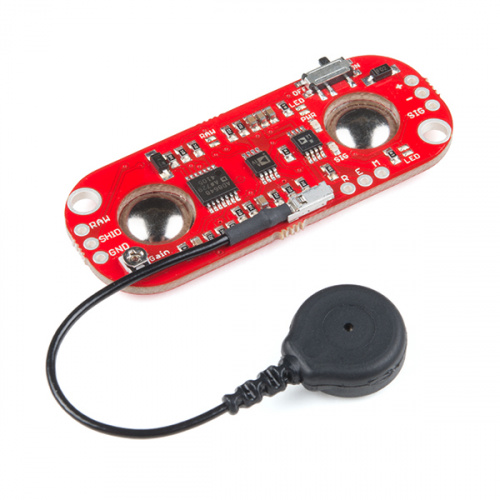
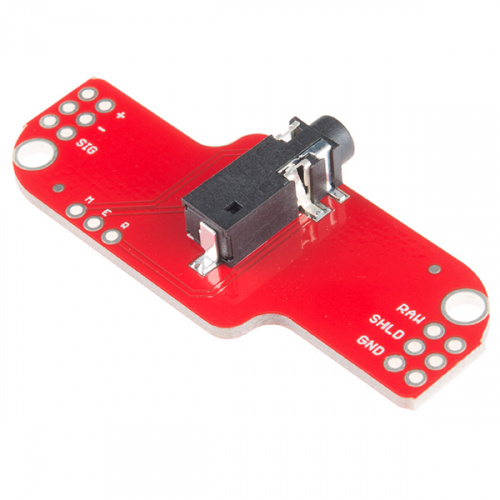
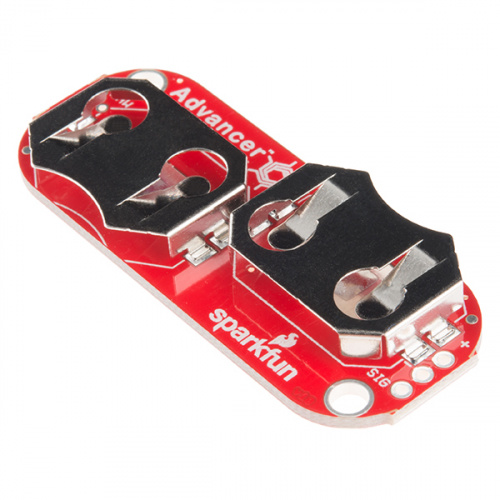
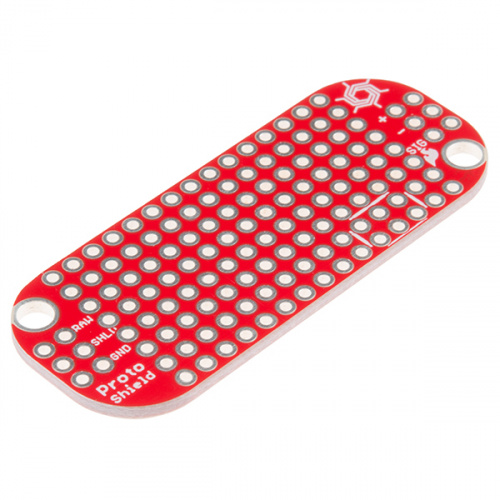
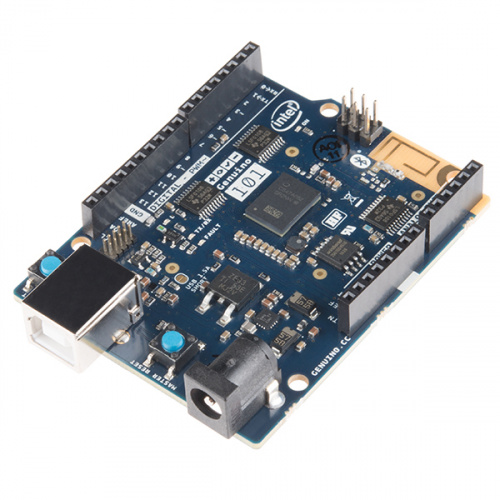
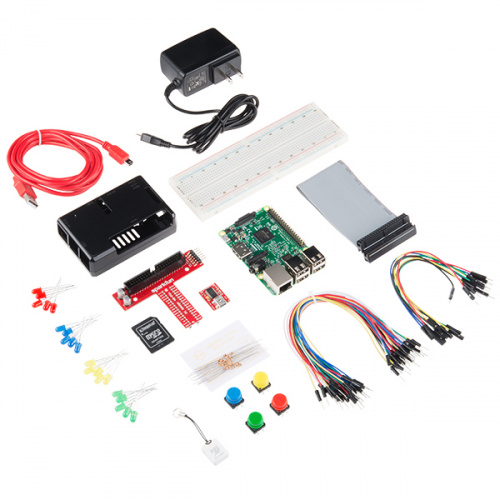
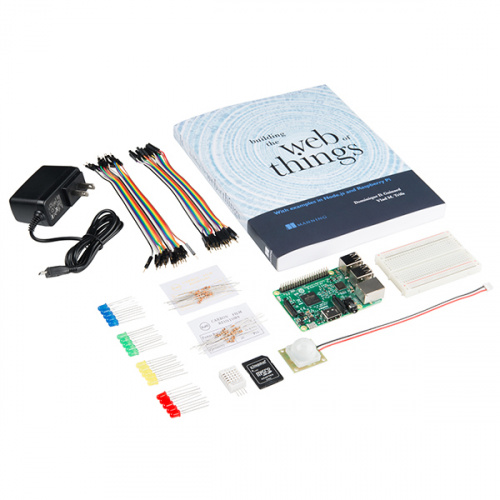
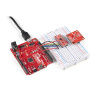






Truly, Electromyography is a strategy for assessing and recording the electrical movement delivered by skeletal muscles. There are numerous muscles that you can screen utilizing this sensor, essentially any that sit near the skin. The sensor ought to dependably be put along the length of the muscle, with the electrode nearest to the wire connection set at the center of the muscle and the second electrode on the circuit board towards to end of the muscle.